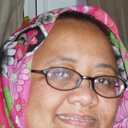Plasma levels of alkylresorcinols and incidence of endometrial cancer.
Keywords
Abstract
A high intake of whole-grain foods may protect against endometrial cancer, but the existing literature is both limited and inconsistent. A significant reason for the inconsistent evidence could be methodological problems regarding accurate assessment of whole-grain intake. Alkylresorcinol (AR) has been suggested as a reliable biomarker of whole-grain wheat and rye intake. Our aim was to overcome the methodological problems in previous questionnaire-based studies, by using AR as exposure measurement when studying the incidence of endometrial cancer. ARs were measured by gas chromatography-mass spectrometry in stored plasma samples from 177 endometrial cancer cases and a subcohort of 152 women, all originating from the same prospective cohort study. Incidence of endometrial cancer according to plasma levels of AR was estimated in a Cox regression model. No associations between plasma levels of AR and endometrial cancer were observed. Body mass index or use of hormone replacement therapy of the participants did not modify the association. This is the first study to associate the whole-grain wheat and rye biomarker AR to a cancer endpoint. No association was found, but more studies are warranted to further explore AR as a marker of whole-grain exposure in relation to cancer and other disease endpoints.


